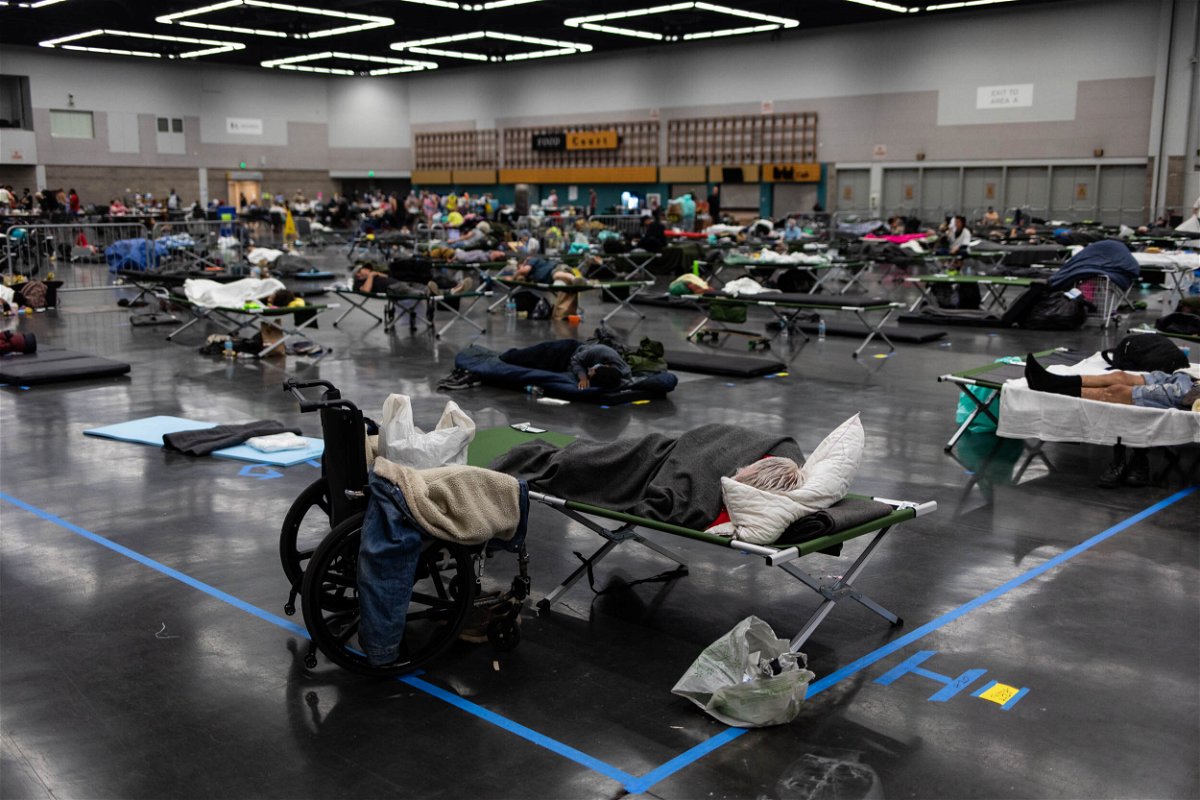America’s most vulnerable suffer without AC during heat waves. We can do better

Residents are shown at a cooling center during a heatwave in Portland
Opinion by Mark Wolfe for CNN Business Perspectives
Record-breaking temperatures are starting to become the new normal. Just last week, Portland reached 116 degrees, Seattle reached 108 degrees, and British Columbia reached 121 degrees. And the extreme heat could last until mid-July in some areas.
Heat waves are a major cause of weather-related deaths in the United States. According to the Centers for Disease Control and Prevention, there were an average of 702 heat-related deaths annually from 2004 to 2018. And just last week, hundreds of reported deaths were believed to be related to the heat wave. The National Weather Service advises that one of the best ways to cool down during an excessive heat event, unsurprisingly, is an air conditioner.
That’s fine if you can afford the bill.
But many Americans cannot. While utility companies scramble to keep up with increasing demand for cooling, some low-income families cannot even afford the cost of an air conditioner, let alone the cost of the electricity needed to power the unit. That means the nation’s most vulnerable families are at a high risk for heat-related illnesses. The federal government and state governments must do more to ensure low-income Americans have access to air conditioning.
When families struggle to pay their energy bills, they are forced to choose between paying to keep their electricity on or buying food, medicine or other essentials. The other option is to not turn on their air conditioner, potentially putting them at a serious health risk. Elderly Americans who have no other income beyond Social Security are particularly at risk. After they pay for rent, food and other essentials, they have little money left over to keep their homes at a safe temperature.
The small solution the country has now isn’t great. Low-income Americans can shelter in locally designated cooling centers until the temperatures drop, but many shelters have limited capacity because of pandemic regulations. It’s also morally wrong — why should a family lose all privacy just because they do not earn enough money to pay their energy bills?
There are better solutions. First, we need to make sure that all low-income families have access to cooling in their homes. When families were asked to shelter-in-place during the pandemic last year, New York City purchased 74,000 air conditioners for low-income seniors. The city also provided supplemental funding to help families pay for the electricity to operate their air conditioners. Local governments across the country should implement similar programs immediately.
Second, Congress needs to fully fund the Low Income Home Energy Assistance Program (LIHEAP) to help the most vulnerable afford to keep their homes cool and livable during these historic heat waves. LIHEAP is a federal program designed to help families pay their heating and cooling bills and provide basic weatherization services. My organization, the National Energy Assistance Directors Association (NEADA), represents the state LIHEAP directors, and we use these funds to help more than six million eligible families annually, improving public health outcomes.
While heat waves have increased the need for cooling assistance in recent years, annual funding for LIHEAP decreased from $5.1 billion in federal fiscal year (FFY) 2009 to $3.7 billion in 2021, causing the program to serve many fewer people than are eligible. Congress should immediately increase funding for LIHEAP to the fully authorized level of $5.1 billion as a first step to help families buy air conditioners and pay for their operating costs.
Heat waves are a public health issue. And no family should be forced to leave their homes and move to a cooling center just because they cannot afford air conditioning. Our communities deserve better.
The-CNN-Wire
™ & © 2021 Cable News Network, Inc., a WarnerMedia Company. All rights reserved.